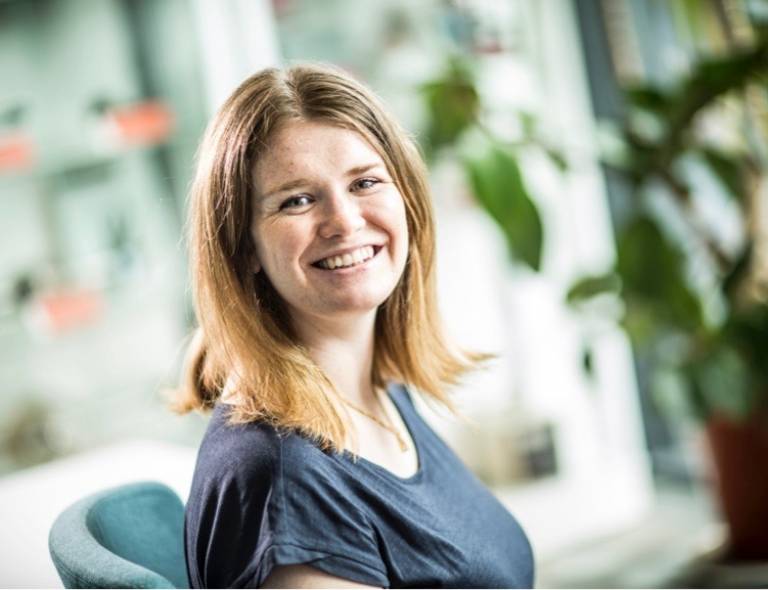A day in the life of Medical Physicist Gemma Bale

13 August 2018
What do you do on a day to day basis?
I’m normally doing one of two things – either running studies or analysing the results from them. As a medical physicist, I design medical devices and test them in the lab and ultimately in the hospital. The device I built, CYRIL, is now being used in the neonatal intensive care unit at UCLH to study baby brain injury, so my current focus is to collect those results and analyse them. At the moment, I am investigating how the metabolism in the brain is related to the level of brain injury, so this requires me to write code to analyse the signals we collect from CYRIL and use knowledge of how the brain works (physiology) to interpret the results. I’ve recently discovered the brain is more seriously injured if metabolism is more reactive to changes in oxygenation.
Saying that, my job is really varied and I rarely do the same thing each day… This year I got to go to Canada for 3 months to develop a new medical device and run some experiments with it, which was really exciting!
Who do you work with?
One of the best things about my job is the people I work with. We have a large and diverse team made up of physicists, engineers, and mathematicians, as well as the wonderful doctors and nurses at the hospital. For example, I work with Izzy, a PhD student, in the lab to develop of new version of CYRIL which will be able to monitor the entire brain of a baby. I also work with Dr Subha Mitra, a neonatal consultant, who leads the baby study in the hospital – he helps me interpret the medical results. I supervise students from the UCL Medical Physics or Biomedical Engineering degree programs which is nice as we can work on new projects together to explore ideas outside the main scope of my research. For example, one student is working on how we can measure blood flow with CYRIL, as well as metabolism.
What are the highlights of your work?
My favourite thing is solving a problem, so I love fixing a bug in my code or figuring out how to make a new device work properly, it’s really satisfying. It’s also really thrilling to use our device to discover something brand new about the brain!
I really enjoy sharing science with the public so working on the MetaboLight project has been really fun and I’ve learnt so much about how to communicate with people who aren’t scientists!
What are the toughest parts about your work?
The hardest thing is studying babies with brain injury. It’s such a devastating disease and it can be really emotional to be around the families. However, it gives me motivation to keep working hard, so that one day we might be able to provide a tool that will help treat these babies.
What advice would you give to someone who is seeking the same line of work?
I didn’t know about medical physics when I was at school, but I got here because I followed what I enjoyed doing the most and narrowed it down over many years – from maths (school) to physics (undergraduate) to medical physics (PhD). If you’re interested in medical physics or biomedical engineering, there are lots of degree programs around. But if you aren’t sure whether to specialise right away, doing a general physics or engineering course can leave lots of options open!
What are your main ambitions?
I'd like to be able to build a device that will be of genuine help in the hospital. So far, we've foudn out that we can predict the level of brain injury using CYRIL, while the baby is just a few days old, so it would be amazing if we can give the doctos this information and help them treat the babies. There are a few more stages of instrument design and clinical studies to go before this, but I hope that we'll be able to affect real change in the near future.
Gemma won a British Science Association Media Fellowship in 2018 and spent two weeks working on the Jeremy Vine Show on BBC Radio 2. You can read some of Gemma's thoughts on the placement, and keep up to date on her other public engagement activities, on Twitter @gemmabale
 Close
Close

